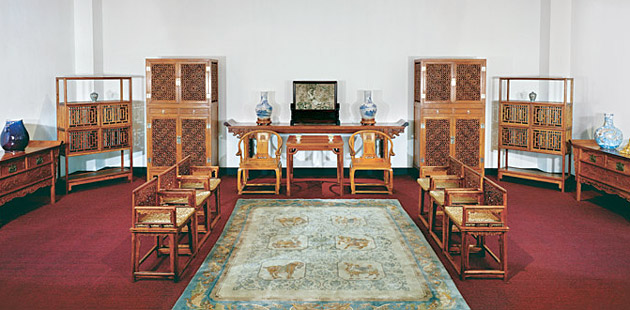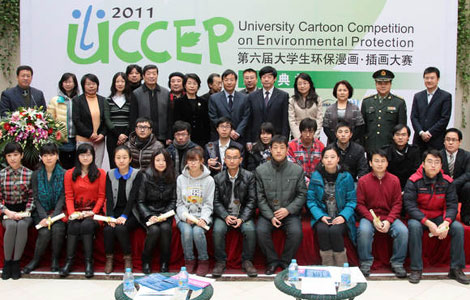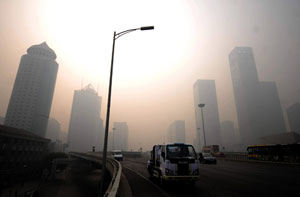BEIJING - Premier Wen Jiabao said Tuesday that China should strive to promote agricultural modernization and protect farmers' rights to boost the development of rural areas.
As a country with a large population, agricultural modernization is equally important as urbanization and industrialization to China, Wen said at the annual central conference on rural work that opened Tuesday in Beijing.
"Any slight failure in agriculture will hamper the country's economic development and social stability," he said.
Agricultural work is of particular significance next year, faced with the complicated macro economic condition and the dual pressures of an economic slowdown and rising inflation, Wen said.
He said more efforts should be done to protect farmers' rights in land properties, income distribution, employment, social security and public services.
The construction of new socialist rural areas remains a significant task, and there is still a lot work to be done to bridge the development gap between rural and urban regions and boost overall agricultural production capacity, Wen said.
Wen said China should stick to the "most strict" protection of farmland and water resource management while constantly promoting agricultural science and technology.
Rapid urbanization is not likely to result in relatively fast change in rural areas, and rural construction should maintain its own features instead of bringing urban designs to the countryside, he said.
Moreover, farmers enjoy the legal rights of land contracts, land use and collective income distribution as basic protections, no matter if they have moved into the cities or stayed in the countryside, he said.
"No one is empowered to deprive such rights," Wen said.
Wen's remarks came after illegal land grabs and other regulatory issues caused mass protests in China.
A dispute over land use, financing and elections in Wukan village in the southern province of Guangdong led to villagers' large-scale protests against local authorities since September.
Wen said it's necessary to significantly improve farmers' gains from land value increment revenue, and the country's current economic condition has allowed this to occur, Wen said.
"We can no longer sacrifice farmers' land property rights to reduce costs of urbanization and industrialization," he added.
Local officials should respect farmers' wills and seek their understanding. Decisions should be made "more realistically" and reflect the wishes of the majority as well as those from the minority, according to Wen.
Wen called for more efforts to encourage farmers who are literate and skilled at farming to stay in the countryside and contribute to the long-term agricultural development.
Wen also stressed improvements in rural school conditions that would allow rural children to enjoy a quality education.
"The removal and merging of schools should be treated very prudently, fully considering convenience and safety of student commuting," he said.
Speaking of farmers' migration into cities, Wen urged more measures to help migrant workers settle down in places where they are employed, while transferring industries to central and western regions, as well as smaller cities and towns, to allow more farmers to find jobs near their hometowns.
The central conference on rural work is set to map out policies for next year's agricultural and rural development, specifying policies such as boosting grain production, raising the minimum state purchasing prices of grain, and increasing subsidies to grain growers in 2012.
Despite natural disasters that frequently hit the country this year, China's grain output reported an eighth consecutive year of growth. Its national grain production totaled 571.21 million tos in 2011, up 4.5 percent from a year earlier.
Meanwhile, farmers' incomes also posted relatively fast expansion over eight straight years, which is expected to top 6,900 yuan ($1,092.6) this year.










